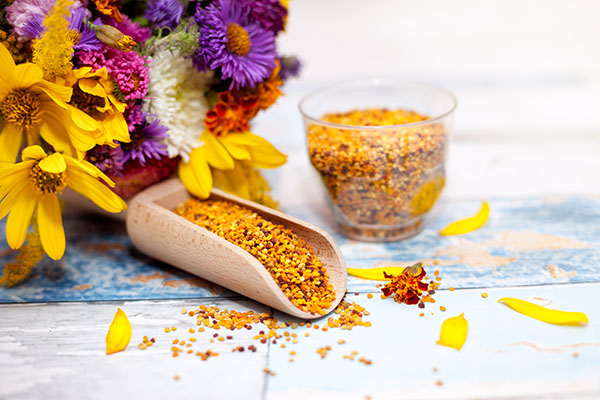
Advertisement
Women who are approaching or already in their menopausal age experience many uncomfortable symptoms, but they may find relief by supplementing with equol. In a review published in the Journal of Medicinal Food, researchers from the U.S. and South Korea found that equol can reduce the incidence and severity of hot flashes in menopausal women.
Equol is not a very common compound. In fact, it is found exclusively in soybeans and other legumes, and structurally belongs to a class of compounds known as isoflavones.
It can also be produced in the body as an intestinal bacterial metabolite of the soy isoflavone, daidzein. However, not everyone can produce equol – only about 50 percent of Asians and 25 percent of non-Asians host the intestinal bacteria that convert daidzein into equol.
For this review, the researchers viewed the efficacy of equol against hot flashes in menopausal women. They searched 12 English, Korean, and Chinese language scientific and medical databases, and found six studies with 779 participants in total that met all criteria for the systematic review. Five of those could be included in the meta-analysis.
All studies assessed the effect of equol – either equol itself or soy isoflavone in equol producers – on menopause symptoms, particularly hot flashes, in peri- or postmenopausal women. Three studies in the meta-analysis reported significant benefits of equol.
The meta-analysis revealed that equol significantly lowered hot flash scores and revealed a generally low risk of bias. The results also suggested that women who can produce equol are more likely to benefit from soy consumption than non-producers. Based on these findings, the researchers concluded that supplementing with equol reduced the incidence and severity of hot flashes in menopausal women.
About 70 percent of all women experience hot flashes and night sweats, also known as vasomotor symptoms (VMS) during the menopause transitions. Many women use estrogen-containing hormone therapy, which is effective in managing these symptoms. However, increasing evidence has shown that prolonged use of hormone therapy comes with many side effects. For this reason, many women are now using other non-hormonal options to manage their symptoms, including alternative medicines like soy isoflavones, black cohosh, and omega-3 fatty acids.
Alternative treatments for hot flashes
There are many natural remedies you can try alongside certain lifestyle changes for relieving hot flashes.
- Stop smoking – Smoking tobacco may accelerate the onset of menopause and make its symptoms, especially hot flashes, worse.
- Manage your weight – Being overweight or obese can increase the intensity and frequency of hot flashes. Staying fit and losing excess weight can also offer many other heath benefits overall.
- Adhere to a healthy diet – Nutrients like proteins and fats may help guide healthy hormone and nerve signaling. A well-balanced diet can also lower blood sugar changes that cause symptoms similar to hot flashes. Women experiencing hot flashes should eat foods rich in omega-3s, such as ground flaxseed, a fish oil supplement, or cold-water fish.
- Drink cold water – Drinking cold water can help cool down your body during hot flashes. Staying hydrated also helps regulate your body temperature. You may also splash cool water over your face or wrists or take a cold shower to lower your body temperature.
- Practice relaxation techniques and exercises – Stress causes the release of epinephrine, which increases body temperature and sweating. Practicing relaxing activities may help decrease the severity and frequency of hot flashes. Yoga, meditation, tai chi, and breathing exercises are some of the relaxation techniques you may try.
- Take phytoestrogens – Many plants contain phytoestrogens or dietary estrogens, which can bind to human estrogen receptors. They are believed to help women with reduced estrogen levels by boosting the effect of the hormone on the body. You can get phytoestrogens from legume and bean products, such as soy. Evidence also suggests that licorice root, valerian root, and black cohosh can help relieve menopause symptoms like hot flashes.
Sources include:
Advertisements







